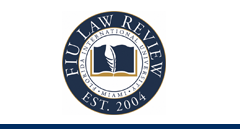Alternate Title
Recognizing a Fundamental Right to a Clean Environment: Why the Juliana Court got it Wrong and How to Address the Issue Moving Forward
Keywords
environmental, fundamental, substantive, rights, constitutional, international
Abstract
As the existential threat of climate change becomes increasingly prevalent, U.S. plaintiffs, lawyers, and activists have begun seeking redress in federal courts arguing for recognition of a constitutional right to a clean environment. Recently, in Juliana v. United States, the Ninth Circuit explicitly recognized the grave threat of climate change for the health, well-being, and security of the American people and the nation as a whole. Additionally, the court found that the U.S. government has contributed to climate change through both inaction and policy decisions that promote the use of fossil fuels. The plaintiffs claimed that they had a constitutional right to a clean and safe environment. The court, however, side-stepped the constitutional question; even assuming Americans have a constitutional right to a clean environment, the court concluded that the plaintiffs lacked standing to pursue their claims. Specifically, any remedy, in the majority’s view, would necessarily require a judicial encroachment on the legislative branch. The dissent vehemently disagreed with this conclusion and offered an analysis supporting a constitutional right to a clean environment. Given the scientific consensus that climate change is a grave and increasing threat to the nation and the world at large, litigants will likely continue arguing for a constitutional right to a clean environment in federal courts. Accordingly, the federal judiciary should re-consider how substantive due process analysis might actually support a constitutional right to a clean environment. This paper argues that it does and more importantly, the federal judiciary can effectuate a remedy without violating separation of powers principles. Federal courts need only consider some of the most important Supreme Court cases in recent history and a turn to international law can provide additional, persuasive support to address the specific separation of powers problem. What will emerge is a framework the federal courts can employ when dealing with constitutional claims to a clean environment. An approach that is necessary, and an approach that works.
Recommended Citation
Robert Kemper, Recognizing a Fundamental Right to a Clean Environment: Why the Juliana Court got it Wrong and How to Address the Issue Moving Forward, 16 FIU L. Rev. 457 (2022), https://doi.org/10.25148/lawrev.16.2.11.
Included in
Constitutional Law Commons, Courts Commons, Environmental Law Commons, International Humanitarian Law Commons, International Law Commons, Supreme Court of the United States Commons





